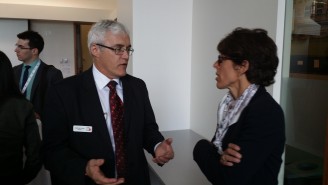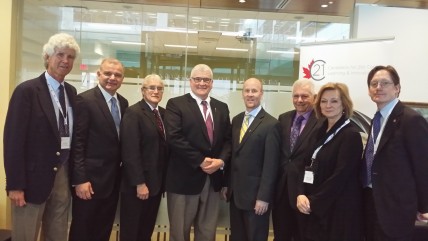 Alberta is in a unique place for many reasons, and to the list that invariably includes economic growth, quality of life and opportunity, you can add education. This will undoubtedly raise more than a few eyebrows, particularly given the ongoing backlash surrounding the provincial math curriculum. But what many likely don’t realize is that Alberta is seen as a leader in Canada when it comes to transforming the K-12 curriculum to ensure students have the right skills and knowledge for the 21st century.
Alberta is in a unique place for many reasons, and to the list that invariably includes economic growth, quality of life and opportunity, you can add education. This will undoubtedly raise more than a few eyebrows, particularly given the ongoing backlash surrounding the provincial math curriculum. But what many likely don’t realize is that Alberta is seen as a leader in Canada when it comes to transforming the K-12 curriculum to ensure students have the right skills and knowledge for the 21st century.
And for the next two years, Alberta, as chair of the Council of Ministers of Education Canada, led by Education Minister Jeff Johnson, is in a position to have a profound impact on the direction of education in this country.
The organization functions as the national voice for education in Canada. It exists because Canada remains one of the few jurisdictions in the world without a federal education ministry. Like securities regulation, education remains the purview of the provinces.
Johnson recently held the last of seven meetings across the country – this one in Calgary – bringing together stakeholders from business, school boards and industry associations to hear about their concerns, needs and gaps that must addressed to ensure students today can participate in the rapidly evolving global economy.
John Kershaw, president of C21 Canada and former deputy education minister for New Brunswick, said Alberta’s Inspiring Education initiative, which includes redesigning curricula, leveraging technology and reviewing actual teaching competencies, is a bold new approach to changing the education system.
“What’s unique about minister Johnson is he assumes the chair at a time when Alberta is leading the country on the 21st Century learning movement … at a time when the idea that this is a good direction to go is being more accepted by other organizations and other provinces,” said Kershaw.
Canada, with other countries, is involved in an international skills race to prepare students for the jobs of today while equipping them to create the jobs of the future.





